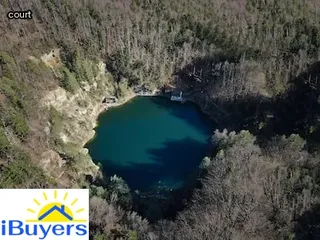When buying a house, it's important to protect yourself legally in the event of home repair issues after closing. Knowing who is responsible for these repairs can be the difference between peace of mind and a costly dispute.
Generally, sellers are responsible for any necessary repairs or replacements that have been identified in the home inspection report prior to closing. However, if an issue arises after closing that was not identified in the inspection report, it is usually up to the buyer to take care of those repairs.
It’s important to discuss any expectations with your real estate agent prior to entering into a purchase agreement and make sure they are included in the contract. If there is an issue after closing that falls under the seller’s responsibility, you may need to contact an attorney or pursue legal action for them to uphold their end of the agreement.
In order to ensure a smooth transaction from start to finish, be aware of who holds responsibility for any potential home repairs and make sure your contract clearly outlines all relevant details.

When going through the process of buying a home, it is important to understand the importance of a home inspection. Home inspections are essential for determining any existing or potential problems with the property and can help you determine what repairs may be needed in the future.
It is important to make sure that you hire an experienced and certified inspector who can provide detailed reports of their findings. During the inspection, your inspector should cover all areas of the interior and exterior of the house including structure, electrical, heating/cooling systems, plumbing, ventilation, insulation, roofs and more.
They should also check for signs of pests or other damage that could cause issues down the line. In addition to inspecting these items, it is important to ask questions about who is responsible for making necessary repairs after closing on a house.
Make sure you have a thorough understanding of who will be paying for repairs so that there are no surprises upon moving in!.
When a home is sold, the seller must disclose all known defects and complete any necessary repairs before closing. This ensures that the buyer receives what they were promised at the time of purchase and provides them with a safe and habitable living space.
Sellers are obligated to respond promptly to repair requests from the buyer, as well as handle all negotiations related to any needed repairs. It is important for buyers to understand their rights in terms of disclosure and repair when purchasing a home, as this will help avoid costly mistakes down the road.
Buyers should also consider requesting an inspection from a qualified professional in order to ensure that any existing issues are brought to light before closing on the sale of the home. Finally, it is essential for sellers to make sure they follow all local laws regarding disclosure and repair in order to avoid legal trouble or financial loss after selling their property.

Transfer Disclosure Statements (TDS) are essential documents when it comes to understanding who is responsible for home repairs after closing. TDS can help buyers and sellers understand their obligations in the home repair process, including what inspections or repairs need to be done before the sale closes, who will be paying for them, and any other pertinent information.
It is important for both buyers and sellers to review their TDS carefully so that they can ensure that all requirements have been met before the sale goes through. Knowing who is responsible for home repairs after closing will help reduce any potential disputes after the sale has closed.
It is also important to note that each state has different laws and regulations regarding transfer disclosure statements, so it is important to familiarize yourself with your local laws before proceeding with a real estate transaction.
The as-is clause is a common term found in real estate contracts, but many buyers are unaware of what it actually entails. Misconceptions about the as-is clause can lead to confusion and potential disputes after closing.
Buyers often mistakenly assume that when signing an as-is contract, they won't be responsible for any home repairs. However, this isn't necessarily true.
The as-is clause is meant to protect the seller from having to make repairs prior to closing, so any existing damages must be accepted by the buyer without recourse. Additionally, while the buyer is not typically responsible for making repairs due to pre-existing damage, they may still be liable for completing necessary maintenance or repairs discovered after closing.
Therefore, buyers should be aware of the terms of their contract before signing on the dotted line and discuss any questions or concerns with their real estate agent or lawyer before proceeding.

When buying a home, it is important to understand who is responsible for making any necessary repairs after closing. Home defects can range from minor wear and tear to major structural or mechanical issues, creating both financial and legal implications that need to be taken into account.
Knowing the legal rights and obligations of buyers, sellers, and real estate agents is essential when exploring solutions for dealing with home defects. Legal contracts should be reviewed carefully before signing in order to ensure that all parties involved are aware of their responsibilities and liabilities.
In addition, buyers should conduct thorough inspections of any property they are considering purchasing in order to identify any potential problems before closing. Having an understanding of the applicable laws can help buyers to protect themselves from any surprises once the sale is finalized.
When purchasing a home, it can be difficult to know who is responsible for repairs and maintenance. Many homeowners choose to take on the DIY approach, but there are alternatives that can save time and money.
Professional contractors can help with major repairs such as plumbing, electrical work and roofing. Homeowners should also consider hiring a local handyman for smaller tasks such as painting, tile repair or furniture assembly.
Property management companies can provide an ongoing maintenance service that includes regular inspections and minor repairs to keep your home in top condition. It is important to understand who is responsible for home repairs before closing so you can budget accordingly and make informed decisions about what kind of services you need.

Indoor plants not only bring beauty and life to a home but can also be used to help repel pests. Houseplants are natural, chemical-free pest repellents that are beneficial for both the environment and your health.
Some of the most effective plants for deterring pests include lavender, eucalyptus, peppermint, thyme, rosemary and marigolds. Lavender is particularly effective in repelling flies, moths and mosquitoes.
Eucalyptus works well against cockroaches, fleas and fruit flies. Peppermint oil is great for deterring ants while thyme is good at keeping away lice and ticks.
Rosemary also has ant repellent properties as well as being known to keep away rodents. Lastly, marigolds are useful in protecting against aphids and other bugs.
Indoor plants make an attractive addition to any home while providing a natural way to keep away unwanted pests.
When purchasing a home, it is important to understand who is responsible for protecting the buyer in a real estate transaction. It is typically the seller's responsibility to ensure that all necessary repairs and maintenance are completed prior to closing.
Buyers should be aware of any potential problems that may arise during the inspection process, as they may be held responsible for these issues after closing. It is essential that buyers review all applicable contracts, including the purchase agreement and any addendums, to understand their legal rights and responsibilities regarding repair costs.
Additionally, buyers should consider investing in a home warranty policy, which can help cover certain repair costs if an issue arises after closing. Finally, buyers should also be aware of their state's consumer protection laws which can provide additional protections in the event of a dispute or other problem related to the sale of a home.

When considering a short sale purchase, there are several key factors to consider in terms of who is responsible for home repairs after closing. One factor is whether the seller and buyer have agreed to any terms regarding repair prior to the closing.
If so, those terms will be binding on the buyer unless otherwise specified in the contract. Additionally, buyers should consider the type of inspection that was performed before closing and if any significant issues were noted.
If there were issues identified during the inspection process, it is important to determine who is responsible for making necessary repairs once the sale has been completed. Lastly, buyers should be aware of any local laws or regulations that may impact who is responsible for home repairs after closing.
It is important to understand all factors involved when considering a short sale purchase in order to ensure a successful transaction and avoid potential disputes down the line.
FHA loans are an attractive option for homebuyers because they have less stringent eligibility requirements than other loan types. To receive an FHA loan, the home must meet certain standards set by the Federal Housing Administration.
These standards include having smoke detectors installed, a safe roof and adequate heating and cooling systems. Homeowners should be aware of the guidelines for meeting FHA eligibility requirements when it comes to repairs that need to be done before closing on a home.
Generally, any repairs needed to bring the home up to FHA standards must be completed prior to closing on the loan. The seller is typically responsible for completing these repairs unless otherwise negotiated in the purchase contract.
Buyers may need to provide additional funds if there are any defects or deficiencies beyond what is considered normal wear and tear that fall outside of FHA guidelines; however, any money provided by the buyer cannot exceed $500 or one percent of the total loan amount - whichever is greater. It's important for buyers to understand their responsibilities for making repairs after closing with an FHA loan so they don't end up with unexpected costs later down the line.

When it comes to home repairs after closing, a home warranty insurance policy can be a helpful tool. It is important to understand exactly what is covered under these policies so that you know who is responsible for taking care of the repairs.
Generally speaking, home warranties cover the repair or replacement of major systems and appliances in your home, including heating and cooling systems, water heaters, kitchen appliances, and more. Depending on your specific plans and coverage limits, some warranties may even cover items such as pool or spa maintenance, garage door openers, plumbing stoppages and more.
Before signing up for a home warranty policy, it is important to review all of the details with your agent so that you have a clear understanding of what is and isn’t covered. In most cases, there will be certain exclusions or limitations that are not covered by the policy which will be outlined in detail during this conversation.
Knowing what you are responsible for when it comes to home repairs after closing can help you make an informed decision about whether or not a home warranty policy is right for you.
Buying a house is a huge financial commitment and responsibility, and it's important to know who is responsible for home repairs after closing. If you discover something wrong with the house after purchasing, it is essential to determine who is liable for making the necessary repairs.
Depending on when the issue was discovered and how it arose, the seller or buyer may be responsible for repairing any damage. In some cases, both parties may need to share the cost of repairs if they are agreed upon prior to closing.
Home inspection reports can also help identify potential issues before closing, allowing buyers and sellers to negotiate who will pay for repairs in advance. Ultimately, understanding who is responsible for home repairs after closing can help ensure that both parties are satisfied with their purchase and avoid costly surprises down the road.

At closing, the seller is responsible for making any repairs to the home that were agreed upon in the contract. This could include replacing broken windows or repairing damaged walls.
The seller must also ensure that all paperwork and documents related to the sale of the home are completed and submitted to the relevant authorities on time. Additionally, they must provide clear and accurate records of any repairs they have made to the property since ownership began.
Finally, if a home inspection was done before closing, it is important for sellers to make sure that any necessary repairs are completed before handing over possession of the property. By following these guidelines, buyers and sellers can avoid disputes down the line over who is responsible for making repairs after closing.
Yes, buyers can do something after closing when it comes to home repairs. Buyers should always inspect the property as soon as possible after closing and before moving in.
If any issues are discovered, the buyer should contact their real estate agent or attorney right away to discuss options for repair. The seller is typically responsible for any repair work that was agreed upon prior to closing and must be completed before the buyer takes possession of the property.
It's also important for buyers to understand that there may be other issues that arise after closing that could require repair or replacement, such as appliances or systems. In these cases, it's generally up to the buyer to cover any costs associated with these necessary repairs.
In some states, a home warranty may protect buyers from certain types of post-closing repairs, but it's important for buyers to ask about this coverage before signing on the dotted line. Ultimately, understanding who is responsible for home repairs after closing can help ensure that all parties involved are adequately protected.
A: A REALTOR typically negotiates the terms of the sale, including which party is responsible for repairs after closing. A HOME INSPECTOR can assess the condition of the property and provide an estimate of costs for any necessary repairs.